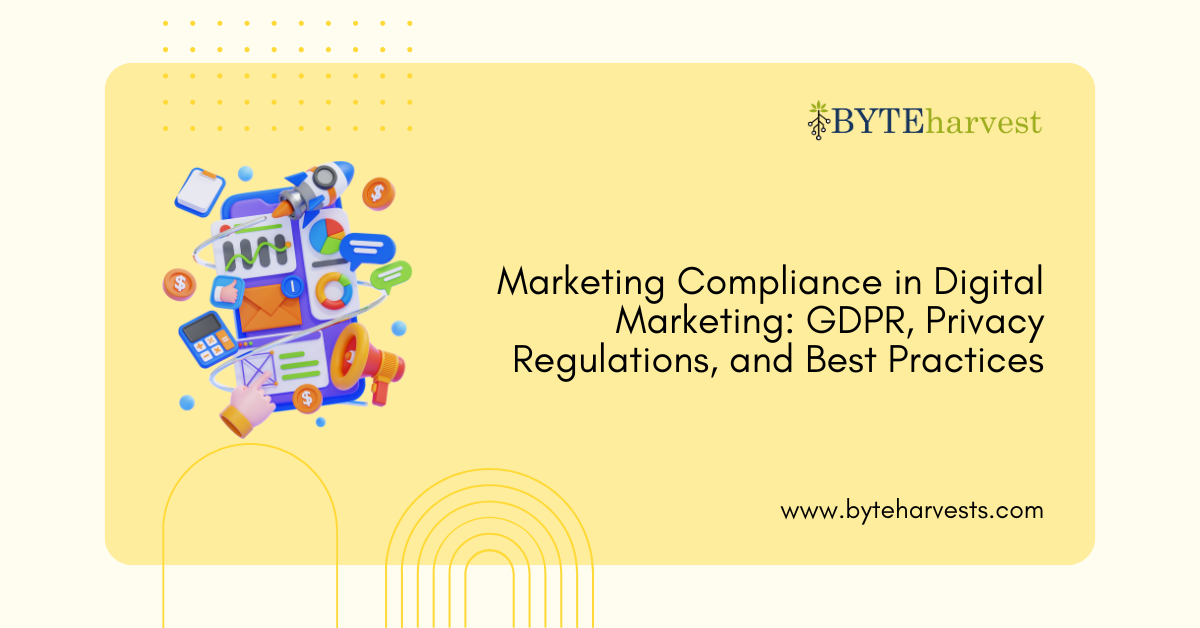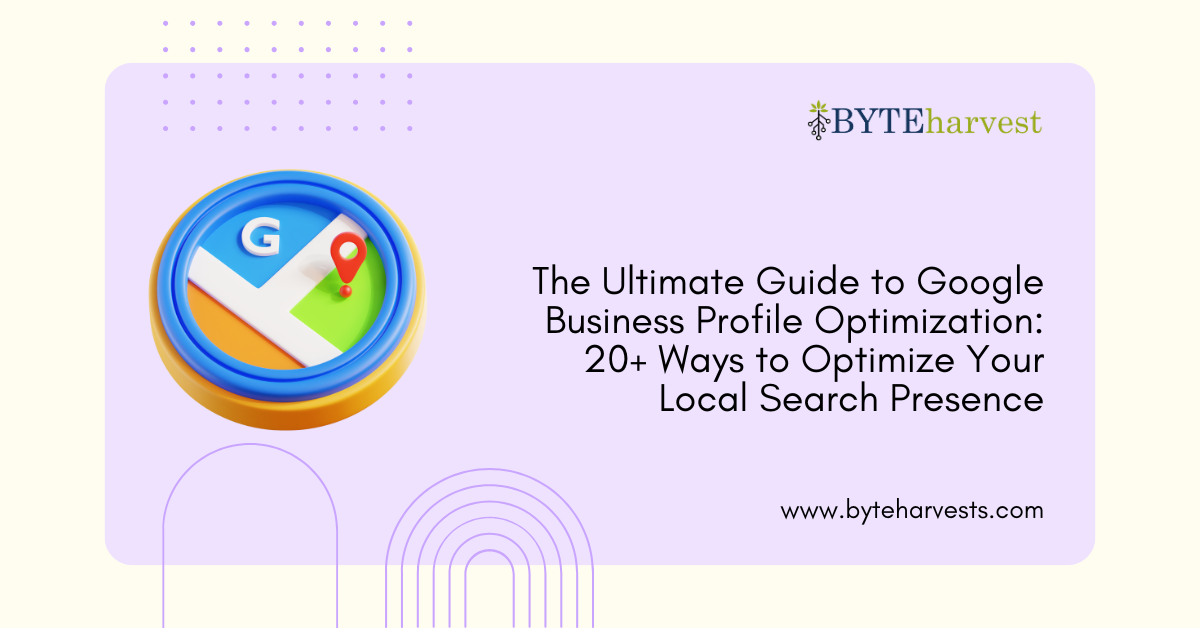Marketing Compliance in Digital Marketing: GDPR, Privacy Regulations, and Best Practices
Compliance in digital marketing is no longer optional—it’s a necessity. With GDPR, privacy regulations, and other global legal compliance requirements shaping how businesses handle personal data, marketers need to strike a balance between effective campaigns and respecting user rights. This article explores marketing compliance in the digital age, highlighting the importance of data protection, best practices, and how every marketer can create transparent, ethical, and effective digital marketing strategies without falling into non-compliance.
Why is this worth reading? Because failure to follow privacy law doesn’t just hurt your brand reputation; it also risks legal penalties, hefty fines, and the loss of customer trust. In 2023 and beyond, the companies that thrive are those with compliance standards embedded into their marketing processes, ensuring secure handling of user data while still running innovative, impactful marketing campaigns.

Outline of the Article
- Understanding Compliance in Digital Marketing
- GDPR and Its Impact on Digital Marketing Efforts
- The Role of Data Protection in Marketing Compliance
- The Importance of Consent and Transparency in Marketing Practices
- Marketing Compliance and Privacy Regulations Beyond the EU
- Email Marketing and Compliance Requirements for Marketers
- Best Practices for Compliant Digital Marketing Strategies
- How Marketers Can Ensure Compliance and Avoid Legal Penalties
- Data Breach Risks, Non-Compliance, and Protecting Your Business
- Building a Marketing Team Aligned with Compliance Standards
Understanding Compliance in Digital Marketing
Digital marketing has transformed the way businesses reach their target audience, but it also comes with growing responsibilities around compliance. Every new marketing activity, whether on social media platforms or through email marketing, involves handling personal information. To comply with data privacy regulations, a marketer must carefully manage data collection, storage, and sharing practices.
Compliance and data protection go hand-in-hand in maintaining consumer trust. Laws like GDPR and the data protection act were created to safeguard how personal data is used. Whether you operate within the EU or serve international customers, you are still required to maintain strict compliance standards to protect your business from legal penalties and negative publicity.
Failure to meet these compliance requirements or ignoring privacy law leads to cases of non-compliance. In practice, that can result in significant fines, public exposure, and the inability to continue certain marketing efforts until resolved.
GDPR and Its Impact on Digital Marketing Efforts
The General Data Protection Regulation (GDPR) changed the landscape of digital marketing forever. It impacts how marketers process the personal data of EU citizens and defines strict legal requirements for accountability. GDPR requires businesses to show transparency in their data practices, making it clear how data is used, stored, and shared.
For marketers, this framework requires a total shift in their marketing strategies. To become GDPR compliant, businesses must introduce consent-driven opt-ins, clearly communicate their privacy policy, and appoint a Data Protection Officer where necessary. This ensures that all digital platforms uphold data privacy and security requirements.
Think of GDPR not as a hurdle, but as a safeguard. When businesses comply, marketing processes become more ethical, focused, and effective, ensuring that digital marketing efforts prioritize customer trust and loyalty.
The Role of Data Protection in Marketing Compliance
At its core, compliance revolves around data protection. Every marketer handling personal data must treat it with care and respect. Elements like data privacy compliance, privacy by design, and transparent data policies are essential to remain compliant with data privacy laws.
Data protection directive laws highlight that companies must adhere to strict principles of consent, accuracy, limited use, and accountability in data handling. Whether through marketing automation, analytics, or personalized campaigns, handling personal information safely is at the heart of all marketing compliance.
In 2023, adopting advanced security protocols and strong data security practices helps reduce the risk of a data breach. Ultimately, strengthening your compliance and data protection measures safeguards both the user data and your business reputation.
The Importance of Consent and Transparency in Marketing Practices
One of the most crucial aspects of marketing compliance is consent. A marketer cannot process personal data without proper opt-in or explicit consent from the user. Equally important is transparency—clearly stating how data is used through a clear privacy policy ensures users remain informed.
Failure to obtain consent or provide clear privacy terms can lead to legal penalties. Under GDPR and CCPA, user rights are reinforced by rules around opt-out options, data subject requests, and obligations on businesses to meet compliance requirements.
In practice, for marketing activities such as email marketing, integrating a consent management platform is essential to stay compliant. Doing so establishes ethical marketing practices aligned with user rights, while still conducting effective strategies and campaigns.
Marketing Compliance and Privacy Regulations Beyond the EU
While GDPR is centered on the EU, global privacy regulations continue to evolve. In the U.S., the CCPA sets rules around personal data for California residents, forcing companies to rethink their marketing efforts. Other countries adopt their own data privacy regulations, making it essential for businesses to track the laws that apply across regions.
For any marketer, this means your marketing campaigns must comply with multiple sets of legal requirements simultaneously. Even companies targeting customers outside the EU are expected to comply with data privacy regulations if they process the data of EU citizens.
This overlapping network of privacy law means compliance isn’t just about one framework like GDPR. Instead, a marketer must apply best practices globally, ensuring uniform legal compliance across all marketing processes and digital platforms.
Email Marketing and Compliance Requirements for Marketers
Email marketing is a cornerstone of digital marketing, yet it poses high risks if compliance requirements are overlooked. Every email marketing list must be built on explicit consent from users through opt-in systems. This ensures compliance with GDPR and data privacy laws.
Once obtained, personal information must be used transparently. For example, marketing practices should clearly explain how emails align with products and services offered. Sending unsolicited messages not only violates privacy law but can also lead to fines and complaints.
To ensure compliance, a marketer should adopt built-in unsubscribe or opt-out buttons, maintain records of consent to personal data usage, and maintain compliance by checking privacy regulations regularly. Having controls in place reduces the chance of non-compliance, data leaks, or breach risks.
Best Practices for Compliant Digital Marketing Strategies
The best way to thrive is by adopting best practices that support both growth and legal compliance. These include:
- Building transparency into every step of your marketing processes.
- Using privacy by design principles from the start.
- Applying consent management platforms across digital platforms.
- Regularly updating your privacy policy to stay aligned with the latest data privacy regulations.
These best practices not only help you meet compliance requirements but also reduce the chance of a data breach. When businesses implement marketing practices aligned with compliance standards, they protect their business reputation while generating trust among their audience.
Effective compliance is not static; it evolves. As privacy law adapts to new technologies and consumer demands, so too must your digital marketing strategies and marketing team.
How Marketers Can Ensure Compliance and Avoid Legal Penalties
For a marketer, avoiding fines and legal penalties requires proactive measures. Following marketing compliance frameworks like GDPR ensures you must comply with data privacy obligations by default. Failure to act could expose you to non-compliance consequences, including heavy penalties and loss of access to critical digital platforms.
To ensure compliance, every marketing team should establish internal frameworks that assess marketing activities, set up privacy by design policies, and provide regular training. Staying updated on new privacy regulations also helps comply effectively without disruption to marketing efforts.
Remember: compliance and data is not simply about legal checkboxes—it’s a competitive advantage that builds brand trust while avoiding unnecessary risks.
Data Breach Risks, Non-Compliance, and Protecting Your Business
A single data breach can cost millions in fines, cripple marketing strategies, and permanently damage reputation. For any digital marketing business, protecting personal data means implementing robust cyber defenses and compliance standards that strengthen data privacy and security.
The data protection directive, data protection act, and modern privacy law frameworks stress that companies are required to maintain clear risk protocols. When properly applied, best practices reduce the risk of breaches caused by poor data handling or misuse of personal data in marketing efforts.
By proactively ensuring data privacy compliance, you protect your business, meet compliance requirements, and demonstrate responsibility with user data across digital platforms.
Building a Marketing Team Aligned with Compliance Standards
The final step is ensuring your entire marketing team adopts marketing compliance principles in their workflow. This alignment isn’t limited to leadership; every marketer must understand legal compliance needs. Training sessions on data protection laws, integrating marketing automation tools responsibly, and utilizing analytics in a compliant manner ensure smoother digital marketing efforts.
A compliant marketing team not only meets global compliance requirements but also fuels creativity within safe boundaries. With collaborative planning and consistent audits, marketers deliver products and services that respect personalization while maintaining clear privacy obligations.
In the fast-changing digital age, aligning with global compliance standards offers the strongest protection against non-compliance and ensures sustainable, trustworthy growth.
Key Takeaways
- Compliance in digital marketing is essential to protect personal data and maintain trust.
- GDPR set the foundation for data protection, and businesses worldwide must comply with similar privacy regulations.
- Consent and transparency are vital for safe marketing practices.
- Email marketing needs opt-ins, explicit consent, and simple opt-out controls.
- Best practices such as privacy by design and regular privacy policy updates reduce risks.
- Ignoring compliance requirements can lead to fines, data breach issues, and legal penalties.
- A well-trained marketing team ensures consistent marketing compliance across all digital marketing efforts.






